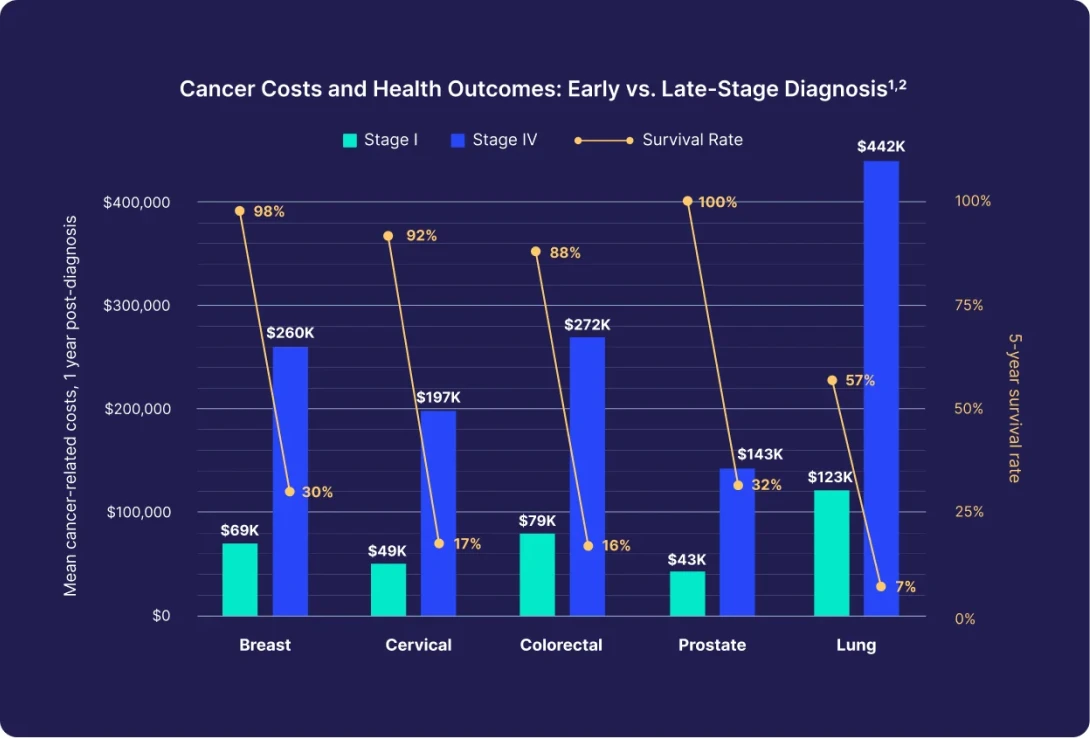What is Early Detection Cancer Screening?
Early cancer detection can mean the difference between life and death. At Sanctura, we provide state-of-the-art screening tools designed to detect cancer at the earliest possible stage.
Focusing on prevention and early intervention, we help patients optimise their health outcomes and avoid the challenges of late-stage cancer treatments. As the cost of treating advanced cancer rises, the benefit of early detection becomes even more critical.


Why Early Detection Cancer Screening Matters
The earlier cancer is detected, the higher the likelihood of improved prognosis. For example, in Stage I breast cancer, the 5-year survival rate is 98%, whereas Stage IV drops to 30%. Similar patterns are found across all cancers; this highlights the value of early screening in saving both lives and healthcare costs.

 Improving Prognosis
Improving Prognosis Cancer Risk Stratification
Cancer Risk Stratification